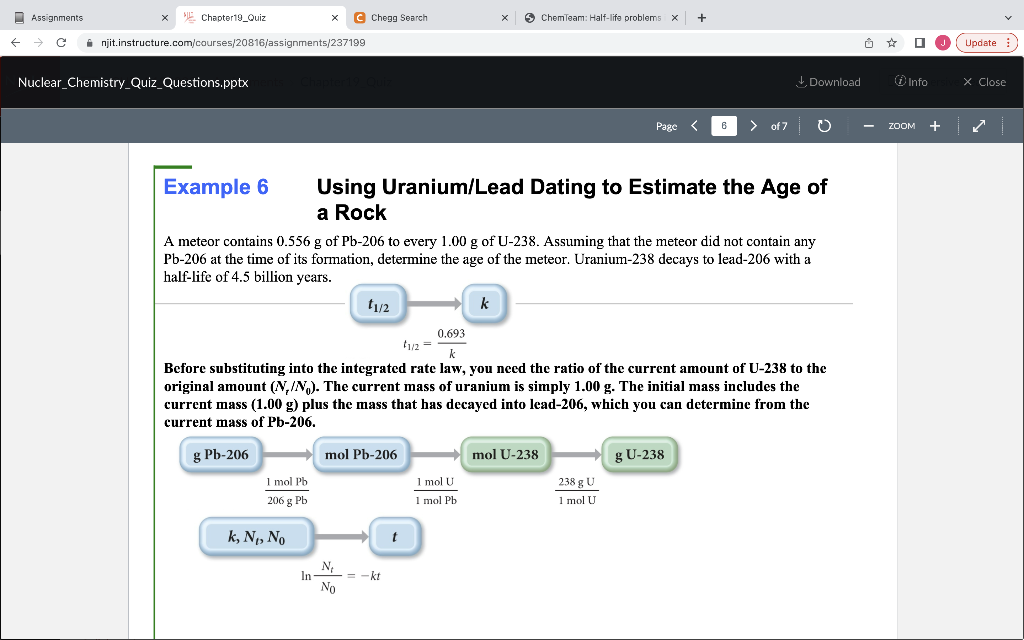Answered step by step
Verified Expert Solution
Question
1 Approved Answer
Assignments Chapter19_Quiz C Chegg Search $ ChemTeam: Half-life problems X + C njit.instructure.com/courses/20816/assignments/237199 DJ Update Nuclear_Chemistry Quiz Questions.pptx Download Info X Close Page of 7

Step by Step Solution
There are 3 Steps involved in it
Step: 1

Get Instant Access to Expert-Tailored Solutions
See step-by-step solutions with expert insights and AI powered tools for academic success
Step: 2

Step: 3

Ace Your Homework with AI
Get the answers you need in no time with our AI-driven, step-by-step assistance
Get Started


